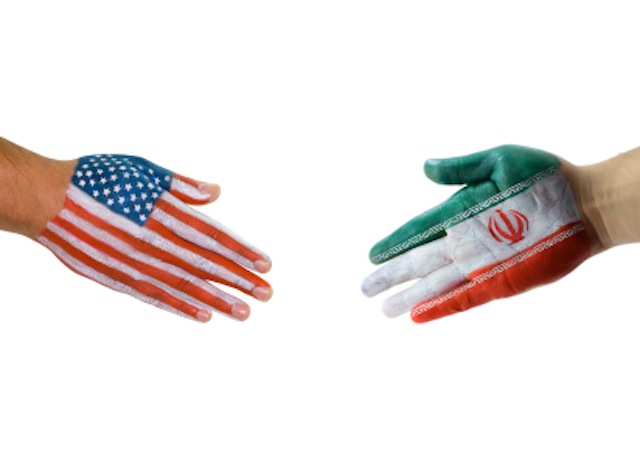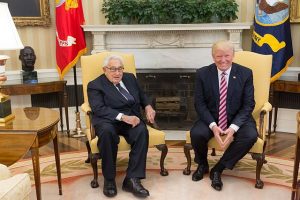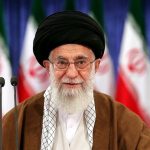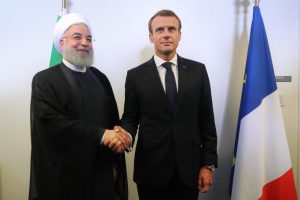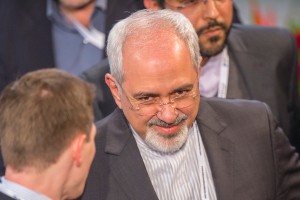by Peter Jenkins
I was in Berlin on Monday when Iran’s Foreign Minister, MIT-educated Ali Akbar Salehi, spoke to a large audience at the premises of the German Association for Foreign Policy (DGAP). I heard Minister Salehi repeat what he had said the previous day in Munich — that Iran is ready to respond positively to Vice President Joe Biden’s offer of bilateral talks — and spell out the expectations with which Iran would approach such talks.
Reports of a statement by Ayatollah Ali Khamenei, Iran’s Supreme Leader, on 7 February have suggested a subsequent contradiction of the Foreign Minister’s statement and that the Leader has closed the door to bilateral talks. I do not believe this to be the case.
Knowing Minister Salehi well (we were diplomatic colleagues in Vienna for more than two years) I am confident that he would not have spoken publicly of Iran’s readiness to engage in talks had he doubted the Leader’s readiness to authorise them. He is both highly intelligent and prudent. He enjoys the Leader’s confidence and is therefore familiar with the Leader’s thinking.
Moreover the Leader did not explicitly rule out bilateral talks. He merely voiced deep scepticism as to whether they would lead to a resolution of the nuclear dispute. He did so in terms consistent with his past utterances and with one of Minister Salehi’s underlying messages on Monday.
The Minister diagnosed a loss of reciprocal confidence as the crux of the US/Iran problem. He suggested that this would lead Iran to look for evidence that Vice President Biden’s offer is “authentic” and not a “devious” manoeuvre.
The Minister was, he said, aware of reasons to think that the offer is authentic. President Obama is clearly a leader who “wants to walk away from war, bloodshed and negativism” and who believes in settling disputes through negotiation. Former Senators John Kerry and Chuck Hagel have taken “a balanced view” in past public statements.
Nonetheless, Iran will be looking to the US to pursue engagement with consistent “sincerity” and to eschew public threats of military action while talks are underway.
Provided this is so, the Minister saw grounds for optimism. It was “about time both sides got into a bilateral process”, about time “reason and wisdom prevailed”.
I flew back to London feeling a little more hopeful about the possibility of a negotiated solution to the nuclear dispute. It seemed to me that at last Washington and Tehran were tuning into the same wavelength.
This is all the more encouraging in that there is little sign that the 26 February meeting between Iran and the 6-world power E3+3 will produce anything of much significance.
In London and Paris, foreign ministers are nursing grudges against the Iranian government that are born of past ministerial experiences; they are doing nothing to encourage officials to be more creative than in 2012.
The tendency is still to demand that Iran abandon the production of 20% enriched uranium and close the Fordow plant, and to offer little in return.
Positions are distorted by seeing Iran as a guilty party, fortunate to be given a chance to build confidence that it intends to be a virtuous global citizen if ever it is granted release from the shackles of sanctions.
The strategic objective of influencing the future calculations of Iran’s leaders, to minimise the risk that will see advantage in exploiting their possession of a dual-use nuclear technology for military purposes, is being neglected.
If the past is any guide to the future, the hope of bilateral progress will soon be dashed. The wrong inferences will be drawn from the Leader’s 7 February statement. Israel will intercept an arms shipment destined for Hamas or Hezbollah. An Iranian plot to murder an ambassador will be uncovered. An Iranian scientist will be assassinated. Congress will pass a resolution forbidding any diplomatic contact with an “evil regime”. White House advisers will staff all flexibility out of the US opening position.
Yet for the time being I shall nurture hope, and, like my former colleague, count on reason and wisdom prevailing.

